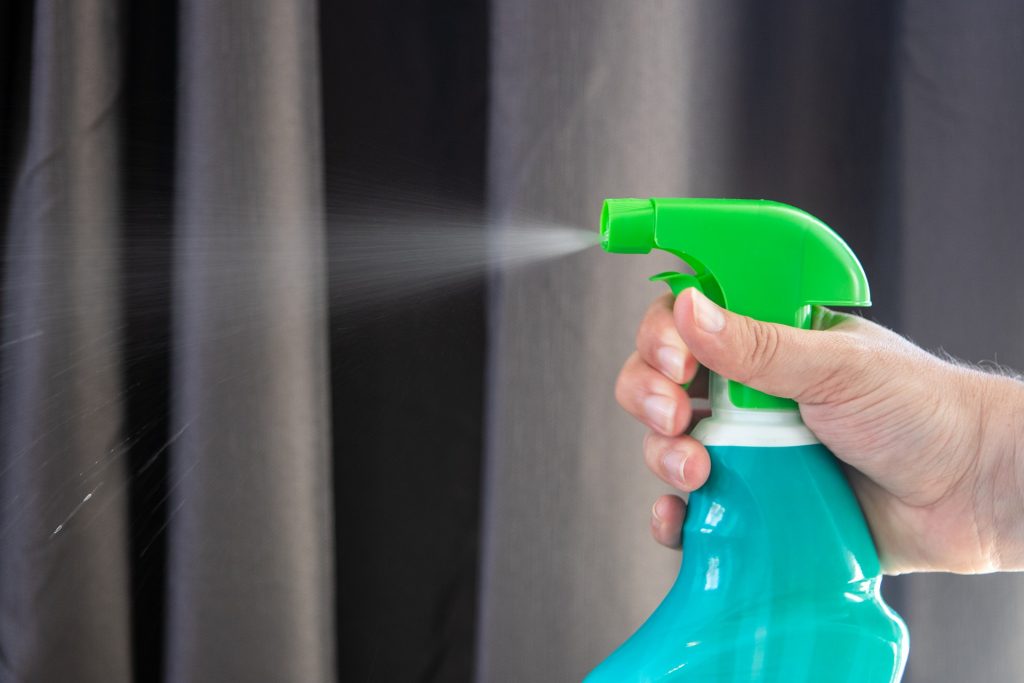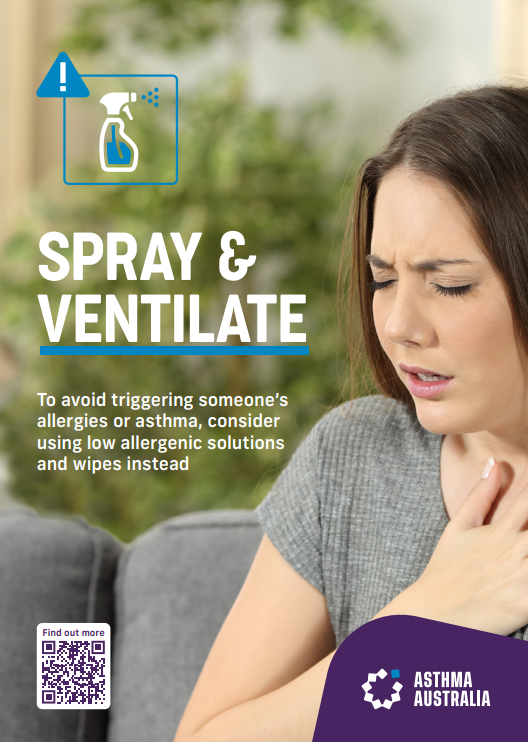Updated 20/10/2020
Survey finds exposure to extra cleaning chemicals an asthma risk during COVID-19
Although an important public safety measure during COVID-19 for many people with asthma, the increased exposure to cleaning chemicals is having an adverse impact on their health says Asthma Australia.
According to a weekly pulse survey of nearly 300 people by Asthma Australia, 29 per cent of respondents recently reported their asthma had been triggered by an increased use of cleaning products during COVID-19 in their homes, workplaces and in public areas.
Of these, people with severe asthma or people with asthma who worked outside the home were more likely to report symptoms.


Asthma Australia CEO Michele Goldman said cleaning chemicals can irritate the airways and skin, so it was important people who are sensitive were prepared to manage it in their environments.
“The first thing is for people to be aware that there are more cleaning chemicals being used around us during this time of Coronavirus and there’s not much we can do about that,” Ms Goldman said.
“As we get out and about more, it does present as a real barrier to people with asthma. But there are some things you can do to prepare and reduce your exposure,” she said.
When asked what the problem chemicals were, Ms Goldman said pinpointing exactly what chemicals caused a reaction could be tricky, “However some of the biggest culprits for triggering asthma are disinfectants like bleach and ammonia, which when mixed together are particularly harmful. Artificial fragrances found in household products are another trigger.”
For 2.7 million people with asthma, it’s yet another thing to be aware of going out into the community and back to work during COVID-19.
One of those is Julia Ovens an HR Manager from Melbourne who lives with severe asthma.
“This is something that hugely impacts me,” said Ms Ovens.
“I have had to ‘ban’ my boss from using disinfectant sprays, I can’t breathe when people spray, it’s been full-on during COVID-19.”
When asked about anti-bacterial products, like hand sanitizer Ms Ovens has struggled with even the chemicals in those but has found a safe alternative.
“I find those antibacterial sprays and gels trigger my asthma. I have turned to the alcohol ones, like the ones local distilleries have made. I found a good local one, so I support local business too,” she said.
Asthma Australia is providing the following helpful advice to people who may experience breathing difficulties when exposed more frequently to cleaning chemicals during COVID-19.
- Understand your triggers and reduce your exposure in circles of your control such as in your home and frequently visited homes of family or friends
- Always have an asthma reliever puffer and spacer on hand in case of emergencies
- Take your preventer medication as prescribed, and if you’re experiencing new or increased symptoms, follow your Asthma Action Plan and consult with your GP for an asthma review
- Ring ahead to reduce your risk – if you have an appointment such as for a hairdresser, phone ahead and check what cleaning routines consist of, and how they can cater for you before your appointment
- For children at schools, be sure to speak to the classroom teacher about what cleaning routines consist of and how this could be adjusted to safely accommodate your child
- Notify your employer and have an empowered discussion about ways to stay well at work and what options are available to you
Employers are encouraged to check if anyone on their staff is sensitive to health impacts from cleaning chemicals and to consider ways to reduce their risk, such as switching from sprays to wipes, and choosing allergy-friendly products where appropriate.
To help, we’ve created a ‘Keep the sprays away’ poster that people can use in the workplace
Download the poster here.
According to Safe Work Australia COVID-19 cleaning guidelines for a non-healthcare business, a combination of cleaning and disinfection will be most effective in removing the COVID-19 virus, when there’s a risk of contamination from an infected case, or in high traffic locations.
For routine workplace cleaning in a non-healthcare workplace, physical cleaning with water and detergent is usually enough according to Safe Work Australia.
The Australian Government Department of Health recommends cleaning frequently touched surfaces such as door handles, bedrails, tabletops and light switches with a detergent solution during COVID-19.







